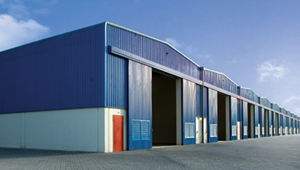The Role Of Technology In Commercial Real Estate

While all industries adopted technology to harness its power, the commercial real estate industry was slow to adopt technology. But when it started to embrace technology, the changes were amazing. Technology has significantly impacted the CRE industry by redefining the way properties are purchased, leased, sold, maintained, and utilized. To streamline various tasks, commercial real estate companies are rapidly implementing artificial intelligence (AI) technologies like machine learning and deep learning. It has increased efficiency and minimized costs. Many engineering marvels have significantly impacted the field of CRE in the past couple of years. For example, drones are used for aerial surveys, property inspections, and site analysis, providing real-time data and high-resolution images for better decision-making. Although still evolving, 3D printing has the potential to revolutionize construction by enabling faster and more cost-effective production of building components. Overall, these technologies have reshaped the commercial real estate landscape, improving efficiency, transparency, and decision-making processes for professionals and clients alike. Let’s learn more about how technology is affecting the commercial real estate sector in the sections that follow.
Key Role of Technology in CRE
CRE companies are now investing more to improve themselves technologically. Some key roles of technology in the commercial real estate industry that are reshaping the CRE industry are discussed below:
Revolution in Property Marketing and Searching
Through the adoption of more effective and efficient marketing strategies, technology is enabling more successful leasing and sales in this sector. For marketing properties, social media, email marketing, and targeted web advertising have become indispensable tools. Using marketing automation software, it became easier for buyers, sellers, and tenants to look for available properties, see virtual tours, access in-depth information, and weigh possibilities thanks to real estate marketplaces and online listing platforms like Costar, LoopNet, Crexi, etc.
Smart Building Technologies
Technology is playing a great role in the advancement of sustainability in the CRE sector, particularly, smart building technologies. In addition to improving occupant comfort and building performance, it further boosts energy efficiency. Some smart building technologies are:
- Building automation
- Building information modeling (BIM)
- Internet of Things (IoT) systems
- Artificial Intelligence (AI)
- Augmented and Virtual reality (AR/VR)
Through the use of smart sensors, different IoT devices, and building automation systems, it is possible to reduce energy usage, which improves sustainability. To ensure building performance, reduce waste, and increase efficiency, technology can be used to monitor occupancy levels, water usage, and energy consumption. CRE stakeholders are increasingly relying on the usefulness of such technologies since they enhance sustainability and minimize environmental impact.
Automation
The application of technology improves the efficiency of operational and property management jobs. Automated systems and software for property management perform a variety of activities, including rent collection, lease handling, and maintenance needs. Using smart building technologies and IoT devices, property managers can remotely monitor and control a variety of building functions, including HVAC, lighting, and security. With real-time data and analytics now at their fingertips, they can gain essential insights into market trends, rental prices, and tenant preferences. Software for managing rental agreements and other papers may have tools to make sure they adhere to the most recent legal requirements. In addition to these, property managers can identify trustworthy and responsible tenants more easily with the help of technology, which has made tenant screening and background checks more simplified and effective.
Let’s leverage technology to grow your portfolio.
Schedule a Discovery CallEnhancing User Experience
Virtual and augmented reality technologies are taking the user experience to a whole new level by offering more interactive property experiences, streamlining the decision-making process and collaboration, optimizing the designs, and maximizing the utilization of space. Below are a few instances of how VR and AR are improving user experience:
- VR technology allows buyers and tenants to tour properties virtually without physically visiting them. They can virtually take a stroll through the property and get an idea of the design, and measurements, as well as explore various parts of the property.
- Through more engaging experiences for prospective customers and tenants, VR and AR technologies enhance marketing efforts and aid in the process of making more informed decisions.
- By facilitating virtual meetings, analyzing designs, making real-time adjustments to them, etc., VR and AR technologies help different CRE stakeholders collaborate. This also saves them time and money.
- VR and AR technologies can be used to virtually inspect any property and evaluate any potential threats.
- Designers and developers can demonstrate subsequent developments in interactive presentations using VR and AR technology, enabling investors and purchasers to virtually experience the development before it is developed.
Accelerating Remote Work and Development of Flexible Workspaces
A major shift during the COVID-19 pandemic was the shift toward remote work. The rapid development of remote work and flexible workspace options has been stimulated by technology. It has made it possible for businesses to adapt to a more dynamic and flexible working environment by ensuring hassle-free communication, promoting collaboration, and strengthening data security. Remote workers can now get involved seamlessly with the assistance of high-speed internet connectivity, video conferencing platforms, and various collaboration and real-time communication solutions. Team members can easily collaborate in real-time using different virtual collaboration tools such as digital whiteboards, project management platforms, shared document editing, etc. Companies now feel confident in enabling workers to conduct their business outside of the typical office setting because of advanced security protocols and data encryption technologies.
Data-Driven Decision-Making
For all corporate sectors, data has become incredibly valuable. Data analytics involves several different steps, including data collection, validation, and visualization. Stakeholders may make better decisions and maximize property performance with the use of data analytics and data-driven decision-making. Technology is essential for allowing data analytics and data-driven decision-making in the CRE sector. Numerous technologies support data analytics and decision-making that are driven by data, such as different property management software, data visualization tools, AI algorithms, CRM systems, etc. Utilizing interactive dashboards and visual representations, which also assist stakeholders in gathering information, allows for rapid evaluation. Geospatial data and mapping technologies have become crucial for analyzing location-related factors that might impact the selection of sites for investments, play a major role in planning, and provide market insights. Moreover, by using machine learning to analyze historical data, it is possible to anticipate how a property might perform in the future, which helps in making more informed decisions.
Blockchain Technology
By boosting efficiency, security, and transparency, and automating many procedures, blockchain technology can significantly impact the CRE industry. It has made strides in real estate by offering transparent and secure transactions, reducing fraud, and simplifying property ownership transfers. Using cryptographic techniques to safeguard transactions and agreements, blockchain technology is a decentralized and distributed digital ledger that enables multiple nodes to record and verify transactions more safely and transparently. In addition to increasing stakeholder trust, this can dramatically lower the risk of contract fraud. By 2024, the worldwide blockchain market is anticipated to be worth $20 billion, according to Transparency Market Research. It can provide a more accurate valuation of a property by delivering market insights like rental rates, sale prices, and market dynamics. The due diligence process can be streamlined for potential buyers and investors by utilizing blockchain’s unalterable property history, ownership, and maintenance records.
Utilization of Tech-driven Solutions
Property managers and owners can utilize proper technology to maximize the tenant experience. The following points highlight how technology can improve amenities and the tenant experience:
- Implementation of different sensor-based IoT devices to adjust a building’s lighting, temperature, etc. can enhance the tenant’s comfort. Owners and managers can establish IoT-enabled parking systems to deliver a convenient, hassle-free, and intelligent parking experience to their tenants.
- Leveraging advanced technologies, it is possible to track the performance of machinery and systems in real time, spot anomalies, and foresee probable failures. This can help in the maintenance of property equipment, ensuring a smooth tenant experience.
- Using portals for renters or mobile apps for specific properties, renters can quickly obtain information about the building or property, make maintenance service requests, reserve space for events, book coworking spaces, etc.
- A high-speed internet facility with smooth connectivity is a must for every property, as it plays a vital role in tenants’ productivity.
- AI-enabled systems can be utilized to enhance tenant experiences, like answering queries, assisting with different tasks, providing information, etc. Automated solutions for mail and package delivery can make the procedure more efficient and increase the reliability of on-time deliveries.
Conclusion
The commercial real estate sector is evolving every day, and technology is playing a big role in this evolution. It has improved effectiveness, efficiency, transparency, and accessibility to information. It has promoted trust and reliability among stakeholders while reducing fraud. For example, smart contracts automate and verify the execution of contractual agreements, ensuring transparency and reducing transaction costs. More informed decision-making is possible thanks to predictive analytics and insights because advanced data analytics help real estate professionals analyze market trends, predict property values, and identify investment opportunities. Online platforms like property listing websites, property management software, and tenant-landlord communication tools have streamlined property transactions and management. So, marketing any property and reaching a wider range of prospective clients is just a click away. According to experts at Allies Commercial Realty, embracing technology-based solutions and advanced amenities to provide top-notch services, maintain effectiveness, and increase satisfaction levels is the only way to remain competitive in this dynamic market.
Topic: Technology Impact, Property Marketing, Smart Buildings
Looking for smarter solutions in commercial real estate?
Talk to a Broker
About the Author - Adam Stephenson, CCIM, SIOR
With over a decade of experience in commercial real estate, Adam is a trusted advocate for privately held organizations, specializing in industrial properties across Central Indiana. Adam brings a wealth of expertise in tenant representation, lease negotiations, and strategic asset acquisitions. A graduate of Indiana University – Indianapolis with a degree in Business Management, he further distinguished himself by earning the prestigious CCIM & SIOR designations. His deep industry knowledge, client-focused approach, and commitment to delivering tailored solutions make his insights invaluable.





















